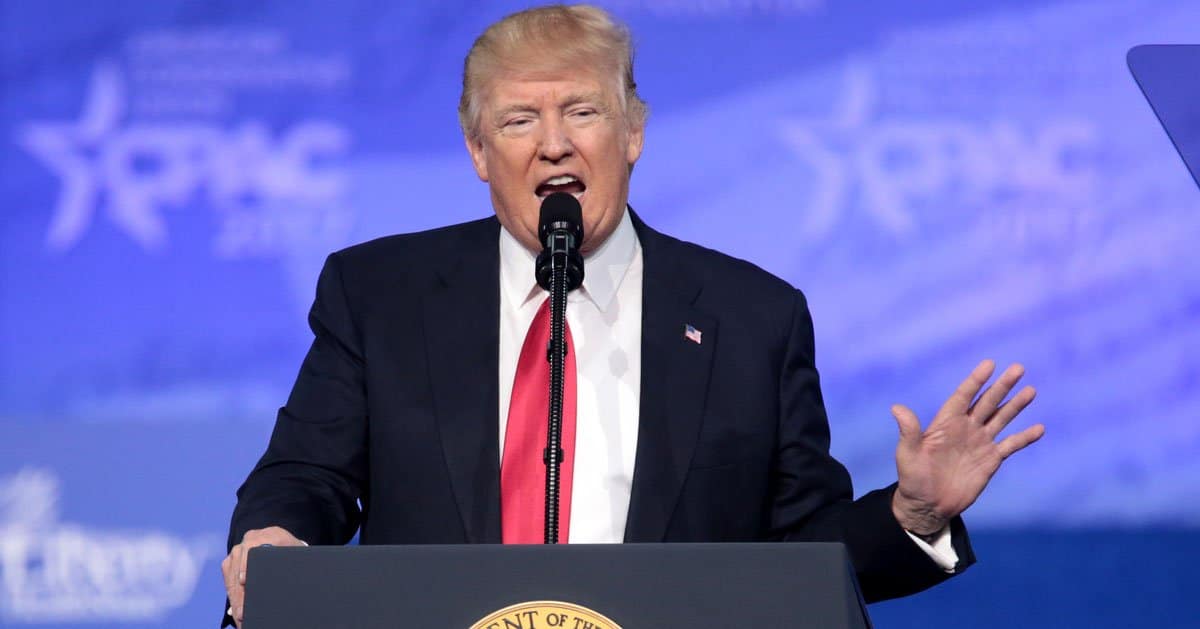








President Donald Trump is poised to strike a blow against politically motivated banking practices. On Tuesday, he will sign an executive order targeting debanking, where financial institutions shutter accounts due to political beliefs.
Fox Business reported that the order directs federal regulators to eliminate guidelines that allow banks to close accounts based on vague "reputational risk" standards. It also mandates a review of past debanking cases, particularly those tied to religious beliefs, with potential referrals to the attorney general.
Trump’s action responds to long-standing complaints from conservatives about discriminatory treatment by financial institutions.
Debanking gained traction under the Obama administration’s 2013 Department of Justice policies. These rules allowed regulators to pressure banks into closing accounts over "negative public opinion," a term critics call a weapon for political bias. Trump’s order seeks to dismantle this framework, arguing it stifles free expression.
Federal banking regulators will now scrub "reputational risk" from their manuals. This vague concept has long been a cudgel, letting regulators strong-arm banks into dropping clients without clear justification. The move signals a shift toward fairness, though skeptics wonder if regulators will drag their feet.
Banks often claim they don’t close accounts for political reasons, yet they bow to regulatory pressure. A JPMorgan Chase spokesperson told Fox News Digital, "We don’t close accounts for political reasons, and we agree with President Trump that regulatory change is desperately needed." Such statements ring hollow when account holders, like Melania Trump, report abrupt closures without explanation.
The executive order also pushes the Small Business Administration to urge banks to reinstate clients unfairly debanked. This could offer relief to businesses and individuals caught in the crosshairs of overzealous regulators. But will banks comply, or will they hide behind fine print?
Regulators must now dig through supervisory and complaint data to spot unlawful debanking. Cases tied to religious discrimination will go straight to the attorney general for scrutiny. This provision aims to hold banks accountable, though enforcement remains a question mark.
Trump told CNBC’s "Squawk Box," "The banks discriminated against me very badly." He claims the Biden administration weaponized regulators to target him and other conservatives. His accusation points to a broader conservative grievance: financial institutions as tools of progressive agendas.
The order requires the Treasury secretary to craft a strategy to combat debanking, including legislative fixes. This forward-thinking approach could cement protections against future abuses. Yet, crafting laws in a polarized Congress is no small feat.
Big banks, often seen as complicit, are cheering Trump’s move. A Bank of America spokesperson told Fox News Digital, "We welcome the Trump administration’s efforts to provide regulatory clarity to banks." Such praise from Wall Street giants raises eyebrows—genuine support or savvy public relations?
Trump’s personal experience fuels his resolve. He told reporters in June, "The regulators control the banks, and when an administration instructs regulators to go and make life impossible for big banks and little banks, [regulators] control it." His words cast regulators as puppet masters, pulling strings to punish political foes.
Melania Trump’s memoir recounts her account closure, and Barron Trump was denied an account post-January 6, 2021. These personal anecdotes underscore the real-world impact of debanking. They also lend emotional weight to the policy push, though critics may dismiss them as anecdotal.
Senate Banking Chairman Tim Scott, R-S.C., called out regulators’ power to "weaponize consistently against Republicans."
His remarks to Fox News Digital highlight a conservative rallying cry: financial fairness. Scott’s support suggests the issue could gain traction in Congress.
When banks close accounts, they rarely explain why, leaving customers scrambling to transfer funds. This lack of transparency fuels distrust, especially among conservatives who feel targeted for their beliefs. Trump’s order aims to force accountability, but changing entrenched practices won’t happen overnight.
The executive order’s signing on August 6, 2025, marks a bold step toward curbing politicized banking.
While it’s a win for those fed up with woke overreach, its success hinges on enforcement and cooperation from banks and regulators. For now, conservatives hope this signals a broader pushback against ideological bias in finance.



